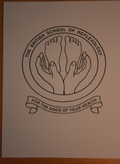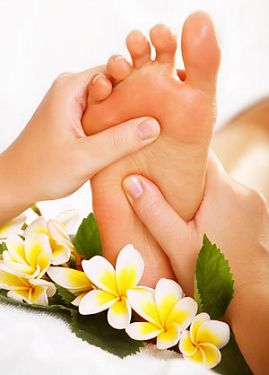Reflexology Therapy, Highbury and Islington, Newington Green, Stoke Newington N16, North London
What is Reflexology?
Reflexology is a complementary therapy involving the treatment of various disorders by applying precise and minute pressure to areas of the feet which are called "reflex areas". Reflexology can be a guide to find out where imbalances are in the body. Imbalance presents itself in the body by causing tension, congestion and inflammation which can, untreated, cause disease. Reflexology can address and treat the imbalances and is therefore a method for initiating the healing powers of the body to achieve "homeostasis" - a state of balance. Reflexology can also be used preventively to keep the body healthy and in good working order and to alleviate stress and promote and maintain relaxation and wellbeing so is appropriate for people of all ages. Reflexology treatments are commonly applied to the feet but can also be applied to the hands.
What is the history of Reflexology?
Reflexology is both old and new. It is old in the sense that we know, from ancient texts, illustrations and artifacts, that the early Chinese, Native Americans and Egyptians worked on the feet to promote good-health. An ancient tomb drawing at Saqqara, in Egypt, dated 2300 B.C. indicates that the ancient Egyptians were aware of a method treatment similar to what we know as reflexology today. What joins the ancients with the moderns is the established principle that there are energy zones that run throughout the body and reflex areas in the feet that correspond to the body parts.
What conditions can it help?
Reflexology can be used to treat clients with conditions such as repeated colds/influenza, migraine, asthma, digestive and gynaecological problems, to name a few and it can be used to find out where imbalances, that lead to conditions, are in the body before they develop into diseases. One of the most common reasons for ill health is stress - the effects of pressures of daily life on our mind and bodies and the other demands placed upon the body, such as dealing with pollution, additives and pesticides in our food, and city living. Reflexology is, therefore, a holistic therapy which treats the whole person i.e. the mental and the physical together.
How does it actually work?
Reflexology works on the theory that there are ten energy zones that run the length of the body, from head to toe - five on each side of the body ending in each foot and running down the arms into the tips of the fingers. These zones run lengthtwise and also pass through the body so that a zone located on the front of the body can also be reached from behind. By stimulating or working any zone in the foot by applying minute pressure with the thumb and fingers affects the entire zone. An example of this would be as follows, working a zone on the foot along which the kidneys lie will release energy that may be blocked somewhere else in the zone, such as the eyes. This is called working with assisted areas to achieve balance in the body. What happens then is that circulation proceeds smoothly, the blood flow improves and oxygen reaches all the cells. Healing takes place and the person experiences a sense of wellbeing at all levels.
What can I expect in the first consultation appointment?
The first appointment will consist of a consultation plus a treatment. A full medical history will be taken to assess the kind of treatment which will be appropriate for you. You will then be invited to lie down (or sit upright)on a couch with your back, neck and legs well supported, and with the feet raised so that the reflexologist can comfortably work on them. After examining the feet, your practitioner wipes them to remove superficial dirt or to cool the feet. A small amount of aromatherapy oil will be massaged onto the feet, the massage helps to relax and get used to the practitioner's touch. The practitioner will then explain how the treatment is to be given. At the end of the treatment the practitioner will give feedback on the treatment and discuss and advise on a treatment plan. Aftercare advice is often given to maintain wellbeing in-between treatments.
What does reflexology feel like and does it hurt?
Different sensations will be felt according to each person and their health, but generally, reflexology is not a painful experience. The greater the degree of tenderness, the more out of balance the corresponding part of the body. In some areas, pressure will be felt but no discomfort, in other areas pressure may feel slightly uncomfortable but is instantly relieved by the practitioner.
How long does a reflexology treatment last and how much is a treatment??
A Consultation appointment (including treatment) is 75 minutes and is £75. A follow-up treatment is 60 minutes and is £70.
How many treatments will I need before I feel benefit?
It usually takes about four to six treatments, depending on the symptoms being treated, to feel the benefit of reflexology. Initially, you may feel reactions such as more frequent emptying of the bladder and bowels, a cough as mucus is cleared from the respiratory system, yawning, tiredness. Symptoms like these are usually a good sign because they indicate that the treatment is working and you will start to feel well and energetic. Expect to have six treatments, once a week and then regular treatments to "top-up" and maintain wellbeing.
What is Reflexology Foot Massage?
Reflexololgy Foot Massage is a relaxing foot massage, using creams or oil to pamper your feet. Reflexology is used to stimulate the body and the massage is used to relax and unwind. Reflexology Foot Massage treatment lasts for half an hour and is thirty five pounds. A great gift for yourself or a friend and a great first step to introducing yourself to the benefits of reflexology.
What can I expect in the first consultation appointment?
The first appointment will consist of a medical history consultation followed by a Reflexology treatment. A full medical history, both physical and mental health, will be taken to assess and adapt the kind of treatment which will be appropriate for you. You will then be invited to lie down (or sit upright) on a heated couch with your back, neck and legs well supported, and with the feet raised so that the Maureen, Reflexologist, can comfortably work on them. You may relax quickly and even drift into a relaxing blissful sleep, or chose to stay more alert during the treatment. After examining the feet, Maureen, Reflexologist practitioner, wipes them to remove superficial dirt and/or to cool and relax the feet. A small amount of aromatherapy oil will be massaged onto the feet, the massage helps to relax and get used to the practitioner's touch. Maureen will then explain how the treatment is to be given. At the end of the treatment she will give feedback on the treatment and your health and discuss and advise on a treatment plan. Aftercare advice is often given to maintain wellbeing in-between treatments.
Home Visits available in North London, Highbury, Islington, Newington Green, Stoke Newington, North London- do get in touch to discuss the details of this aspect of my work as a Reflexologist in Highbury and Islington but I am also a available as a Reflexologist Stoke Newington.
Gift Vouchers available for Reflexology Therapy, Facial Reflexology and Indian Head Massage (Champissage). They are always a well received gift for many occasions.
Combination Treatments available on request - See More Therapies section for more information.
Reflexology Therapy: for physical and mental health.
Gift vouchers available.

